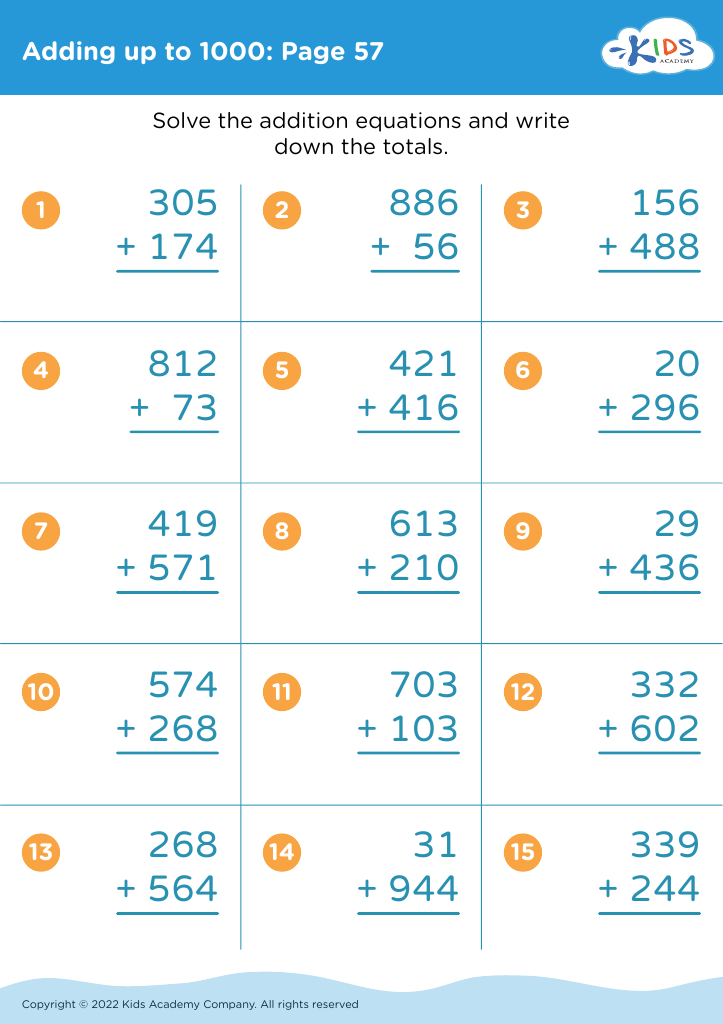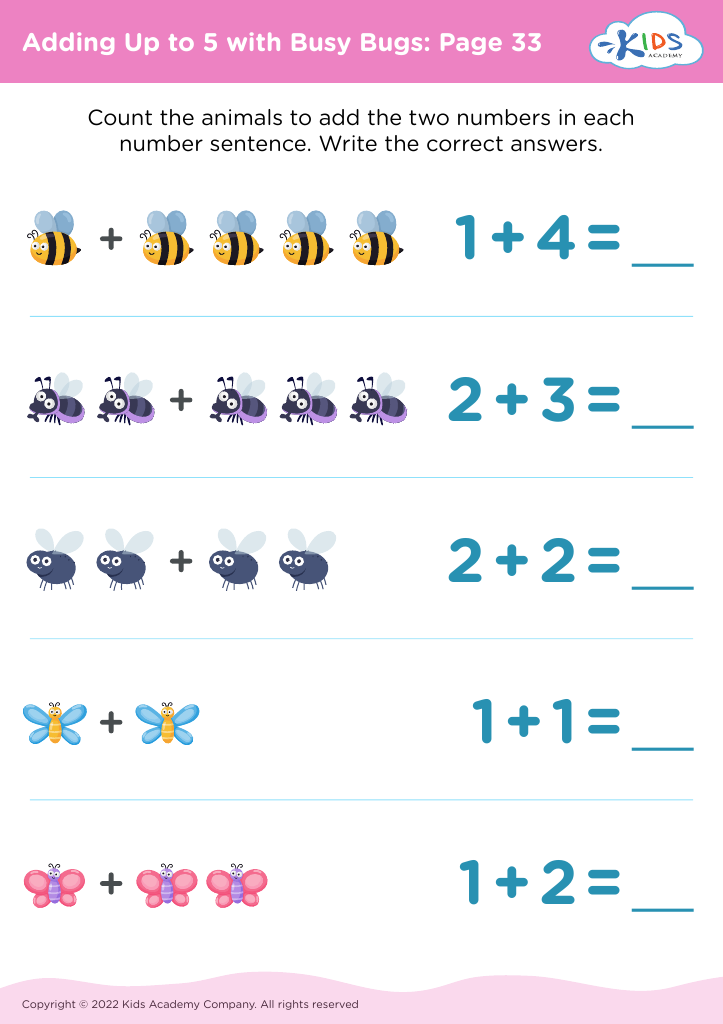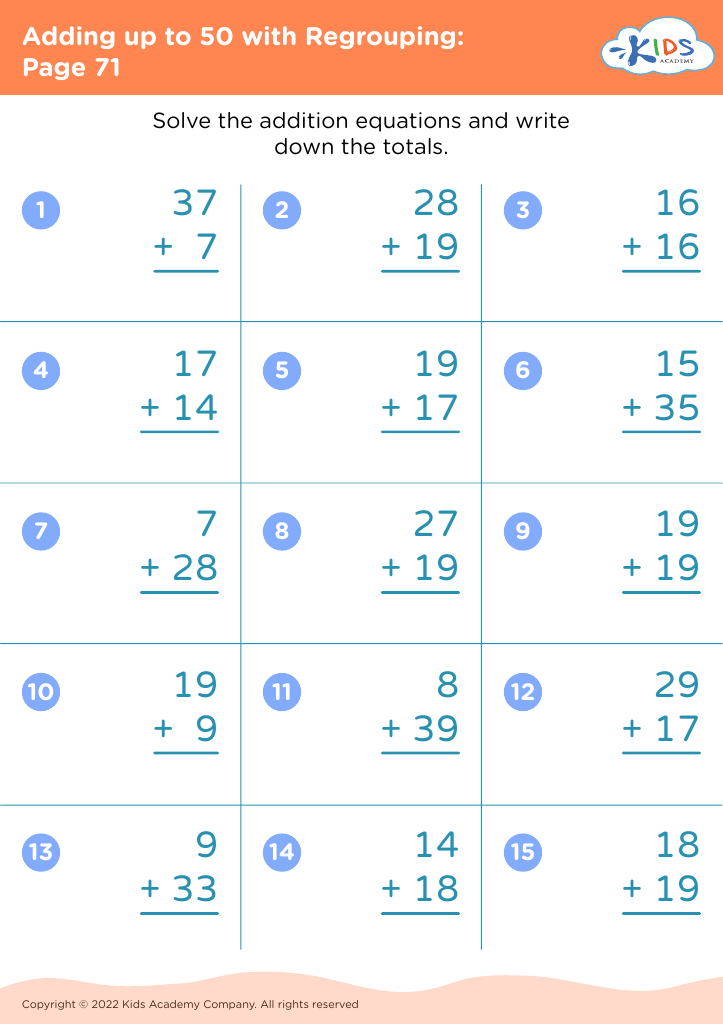Motor skills development Addition & Subtraction Worksheets for Ages 5-9
5 filtered results
-
From - To
Enhance your child's learning with our Motor Skills Development Addition & Subtraction Worksheets for ages 5-9! These expertly designed worksheets do more than just teach math. They integrate activities that refine fine motor skills while promoting number sense and problem-solving abilities. Each worksheet features engaging exercises that encourage kids to write, draw, cut, and paste, strengthening hand-eye coordination, dexterity, and muscle memory. Perfect for at-home practice or classroom use, these resources make learning math fun and interactive. Help your child build a solid math foundation while boosting their motor skills simultaneously! Visit our web page to download and start learning today.
Motor skills development, alongside the ability to perform addition and subtraction, is crucial for children ages 5-9 and deserves significant attention from both parents and teachers.
First, fine motor skills such as hand-eye coordination, dexterity, and precision are foundational for writing and manipulating small objects. These skills affect daily activities like dressing, eating, and playing, promoting overall independence. Moreover, well-developed gross motor skills contribute to physical health, coordination, and general confidence in movement.
Simultaneously, mastering addition and subtraction skills is fundamental for academic success. These are not merely mathematical tasks; they enhance cognitive abilities, such as logical thinking, problem-solving, and memory. Early numeracy lays the groundwork for more advanced mathematical concepts and boosts confidence in academic abilities.
For parents and teachers, integrating motor skills development with learning addition and subtraction creates a holistic approach to education. Activities like counting with physical objects, drawing numbers, and interactive math games can simultaneously hone motor abilities and mathematical understanding. Engaging in these activities supports well-rounded development, enabling children to succeed not just academically but in everyday life.
In conclusion, focusing on motor skills and arithmetic in early childhood education sets a solid foundation for future learning, promotes independence, and fosters overall personal growth. Ensuring children are confident in these areas prepares them for more complex challenges as they grow.




















